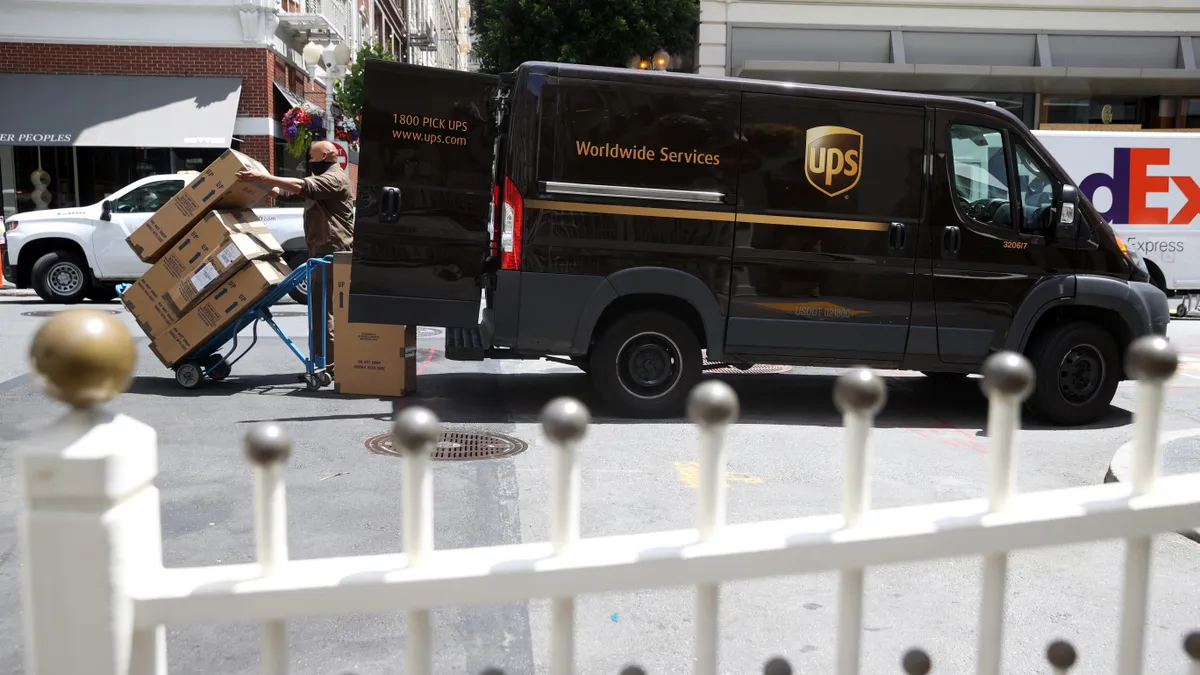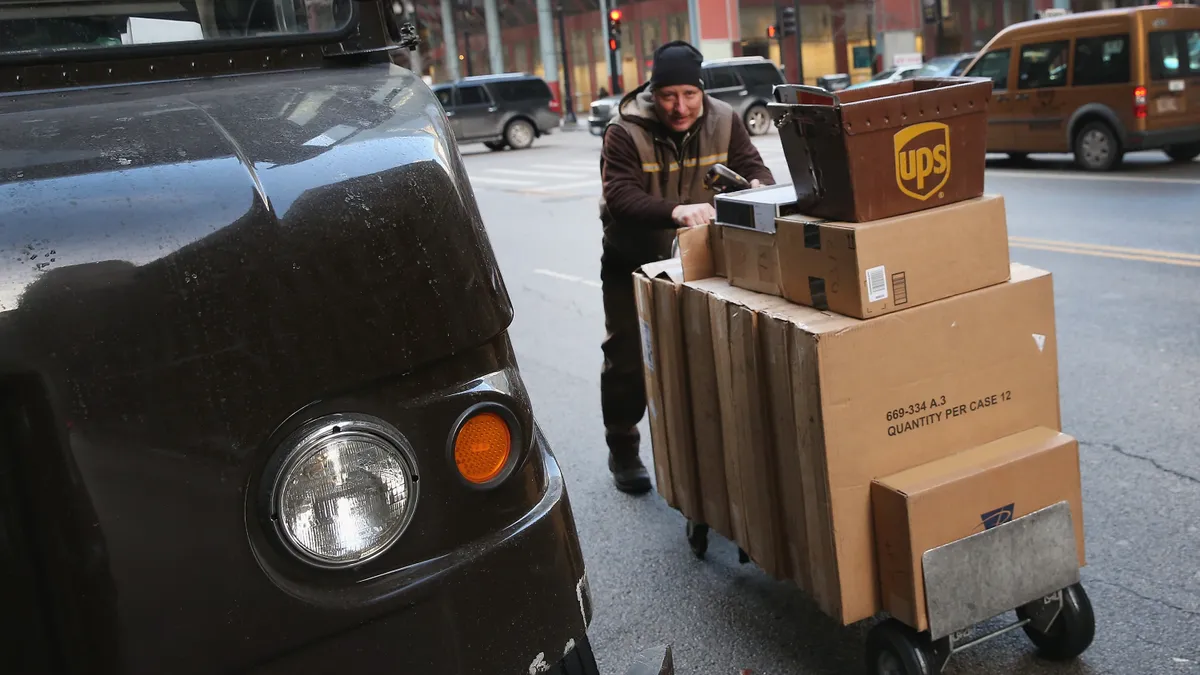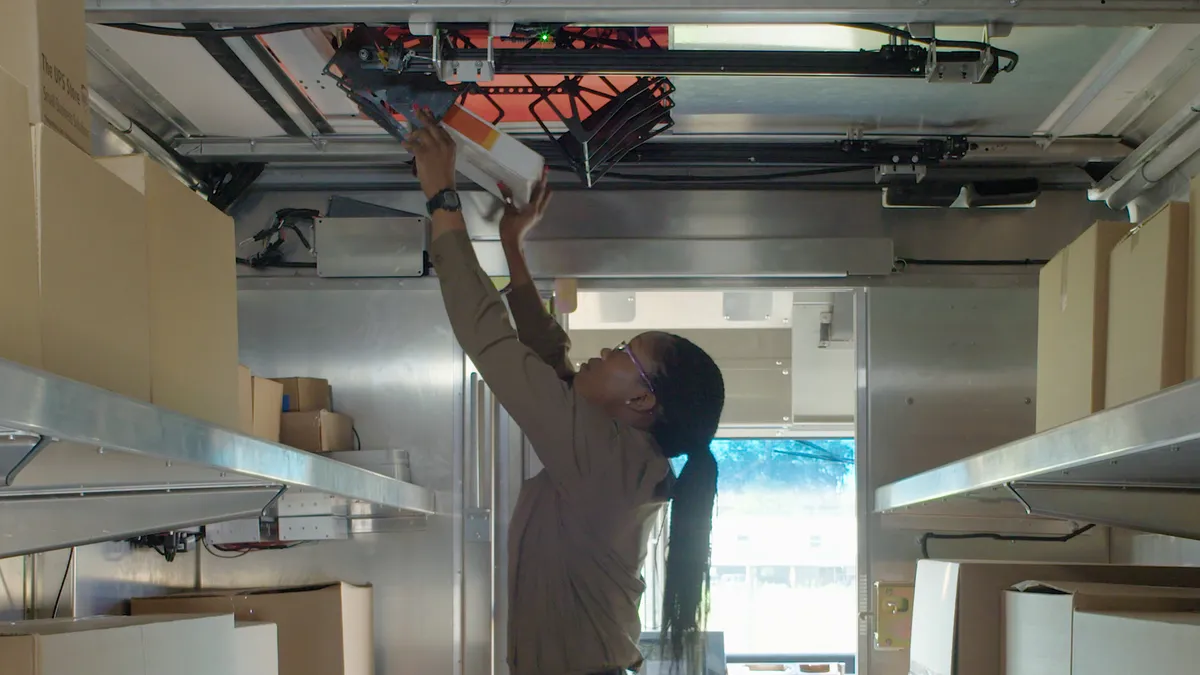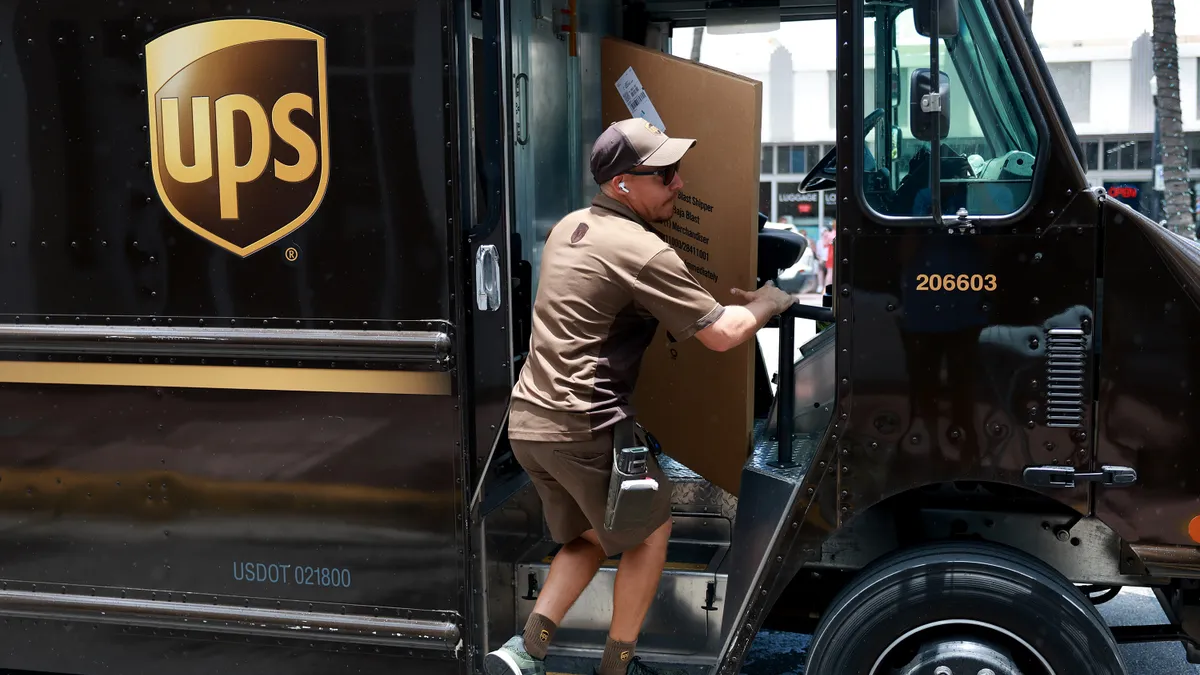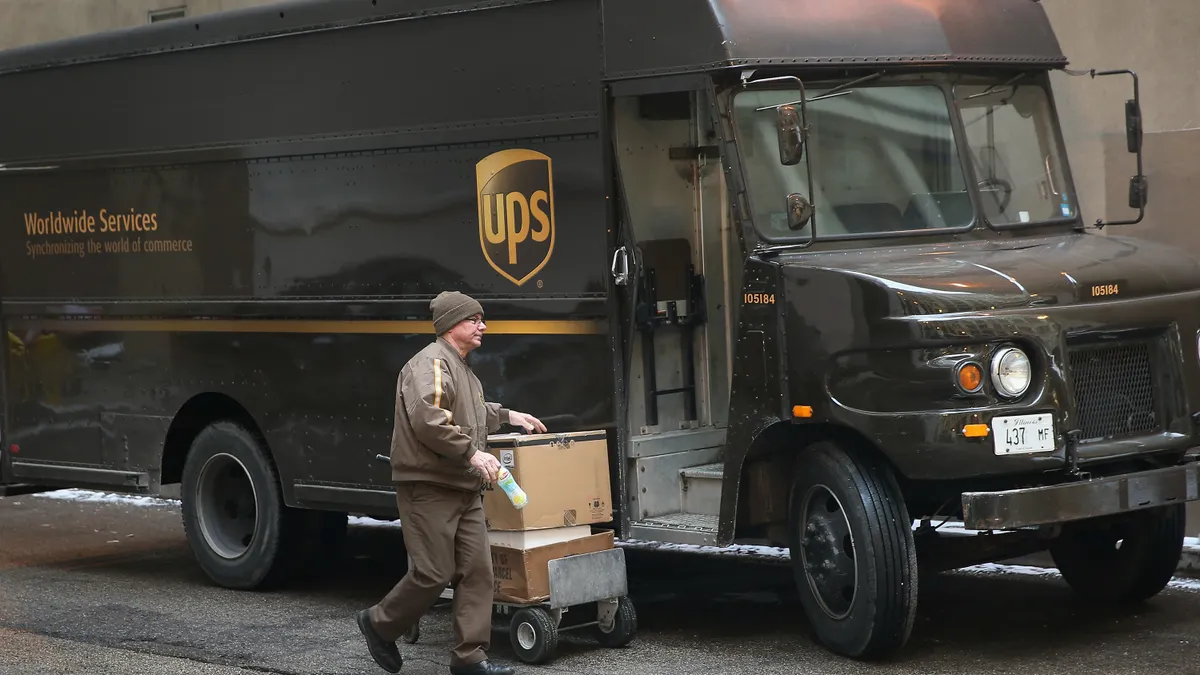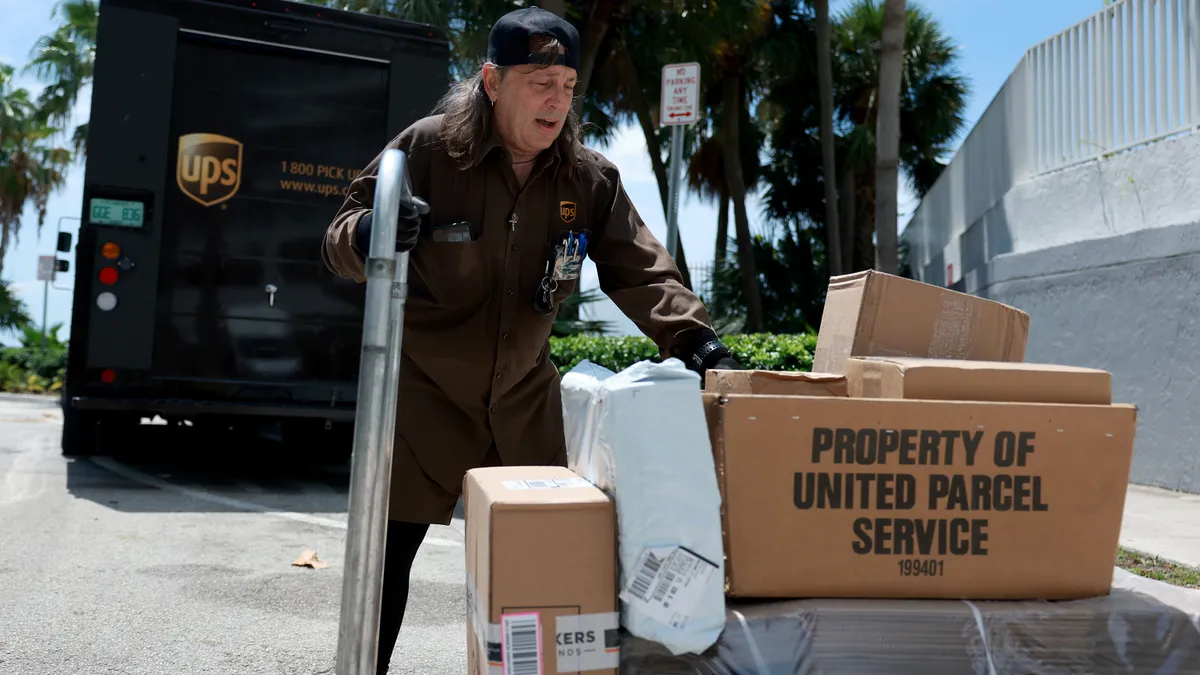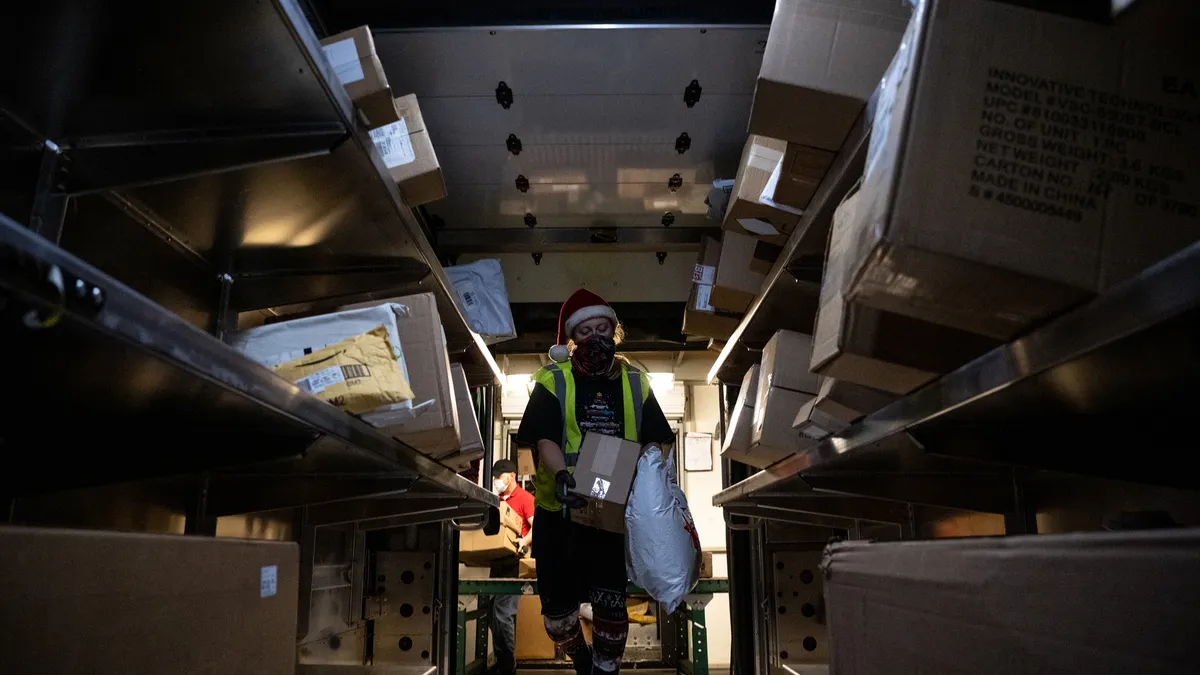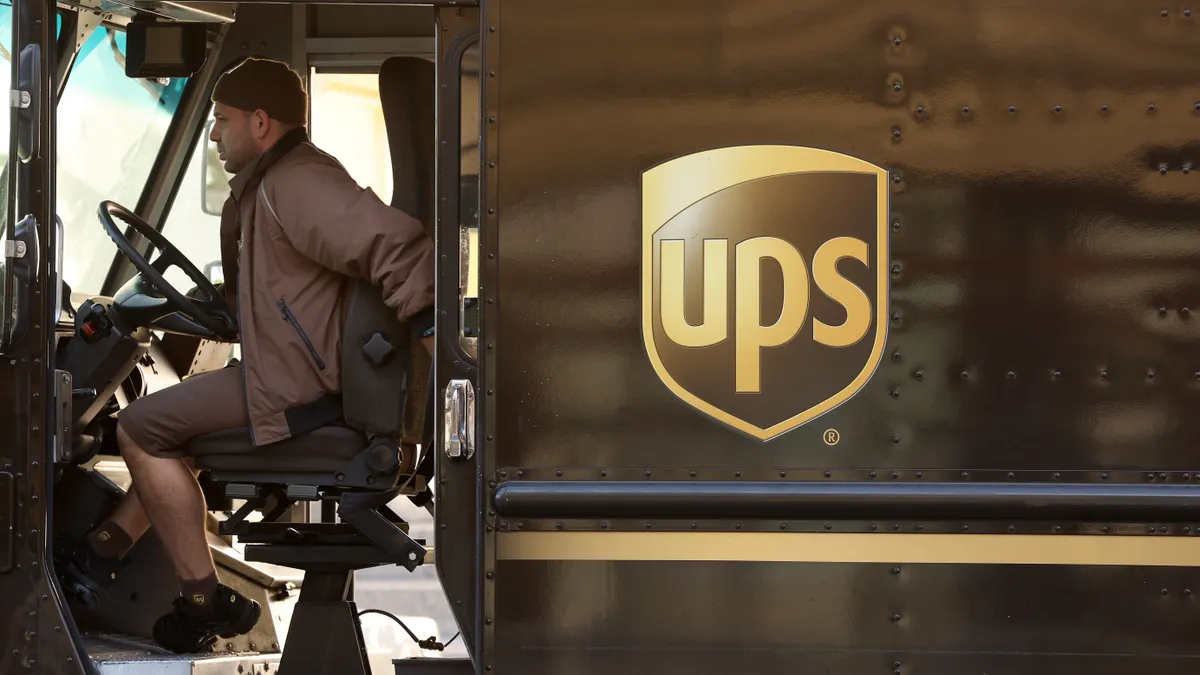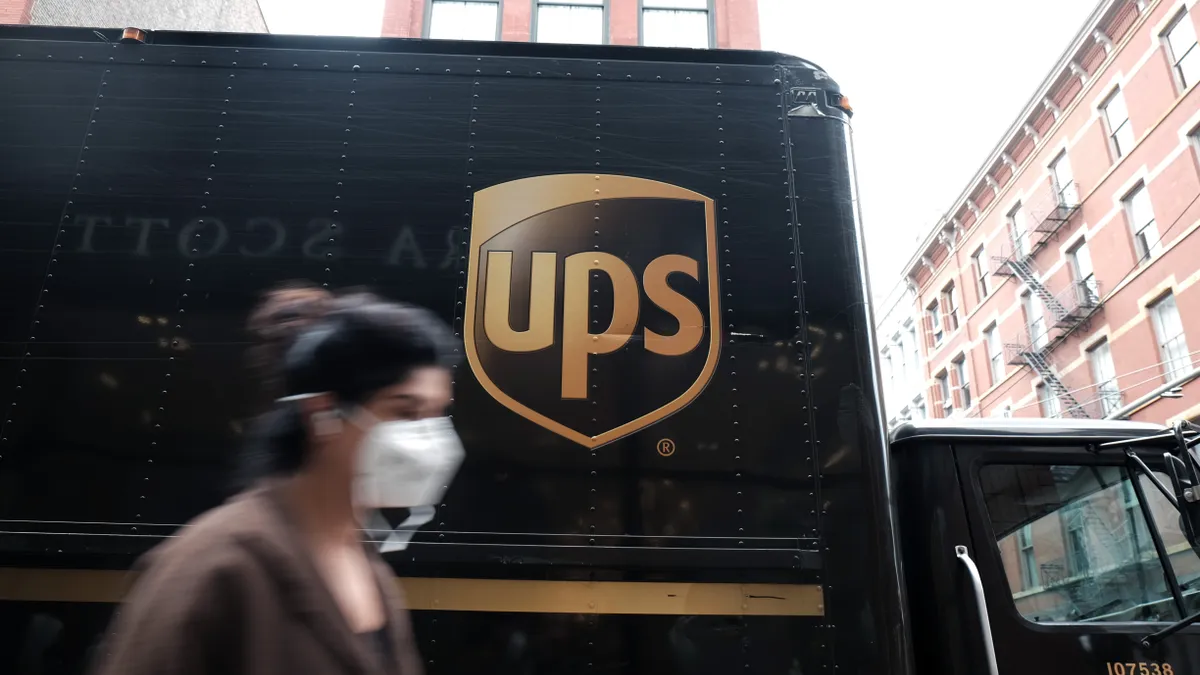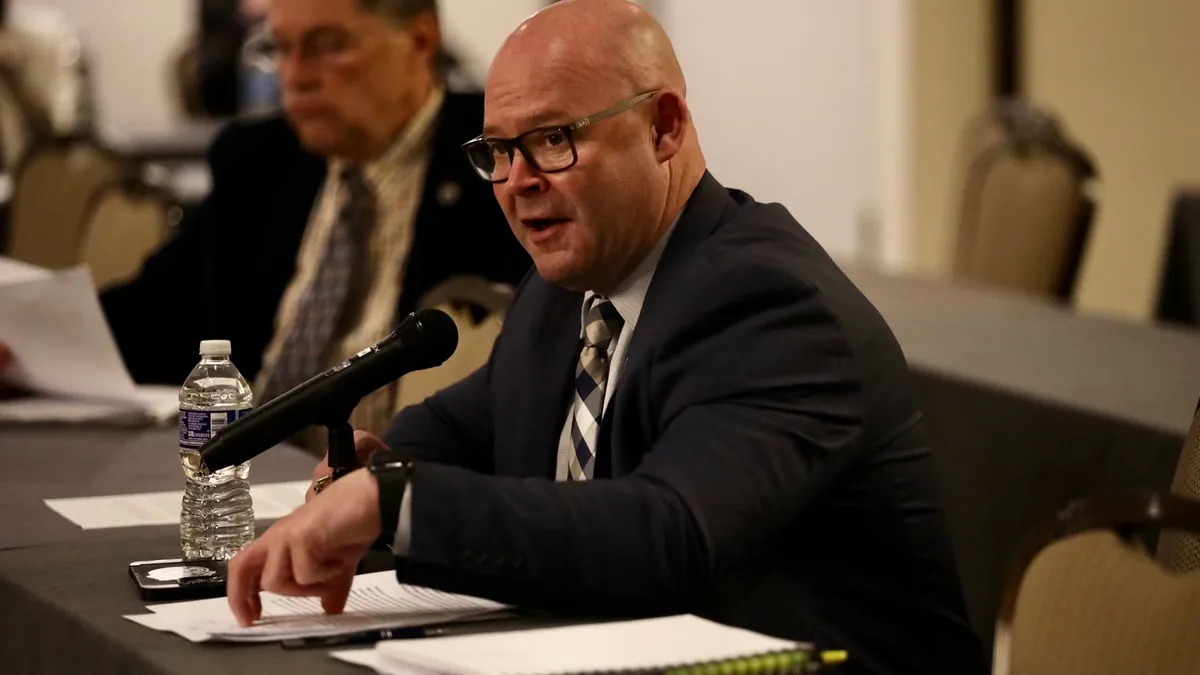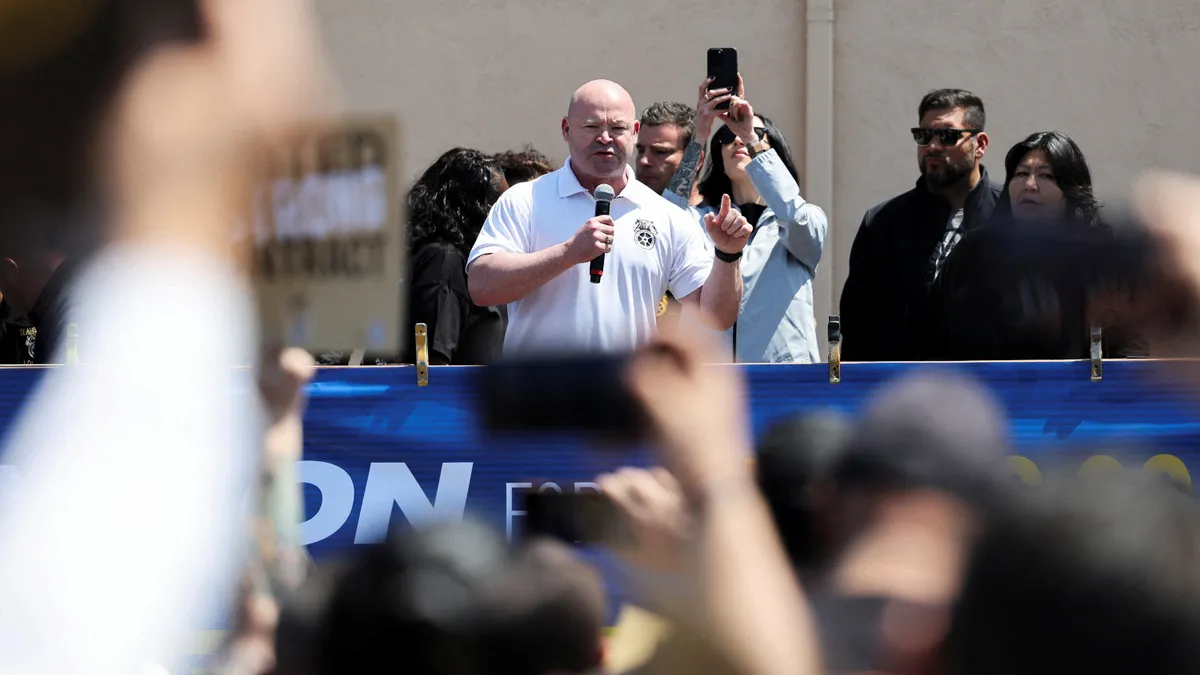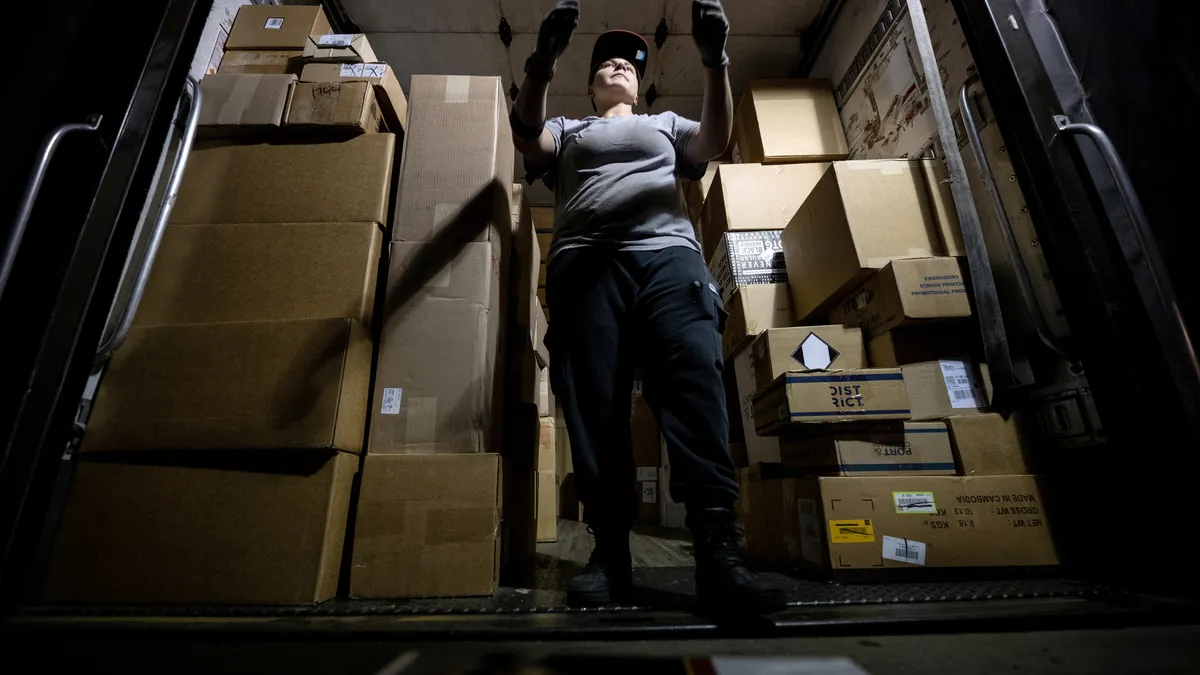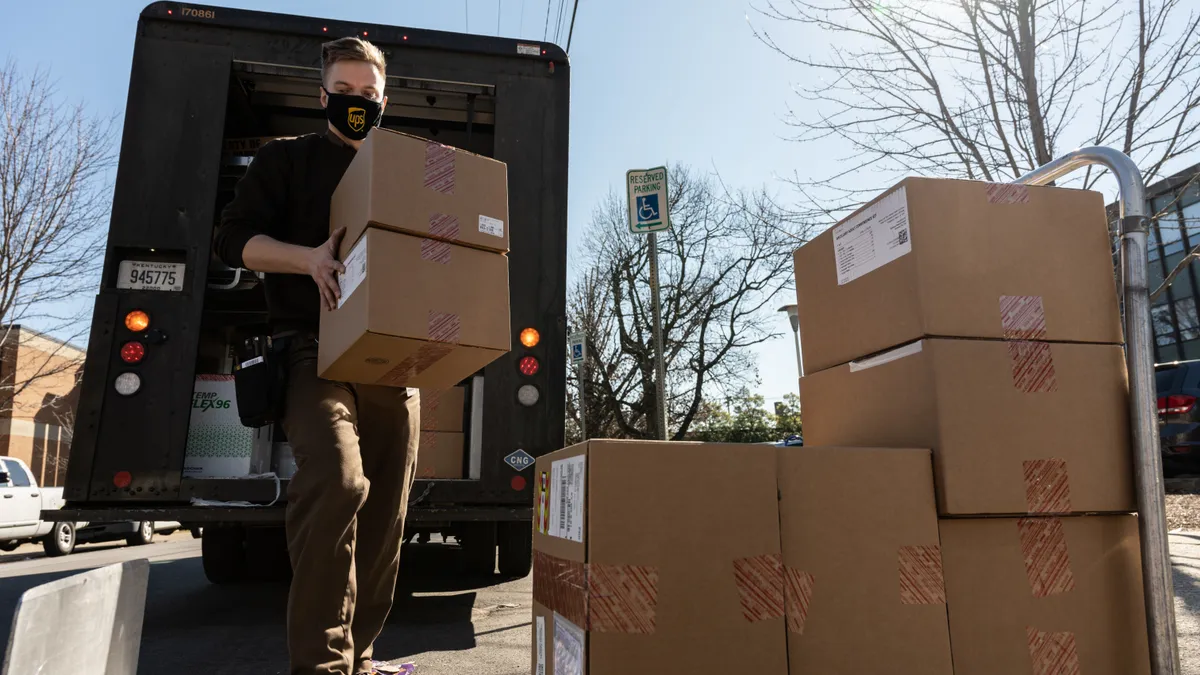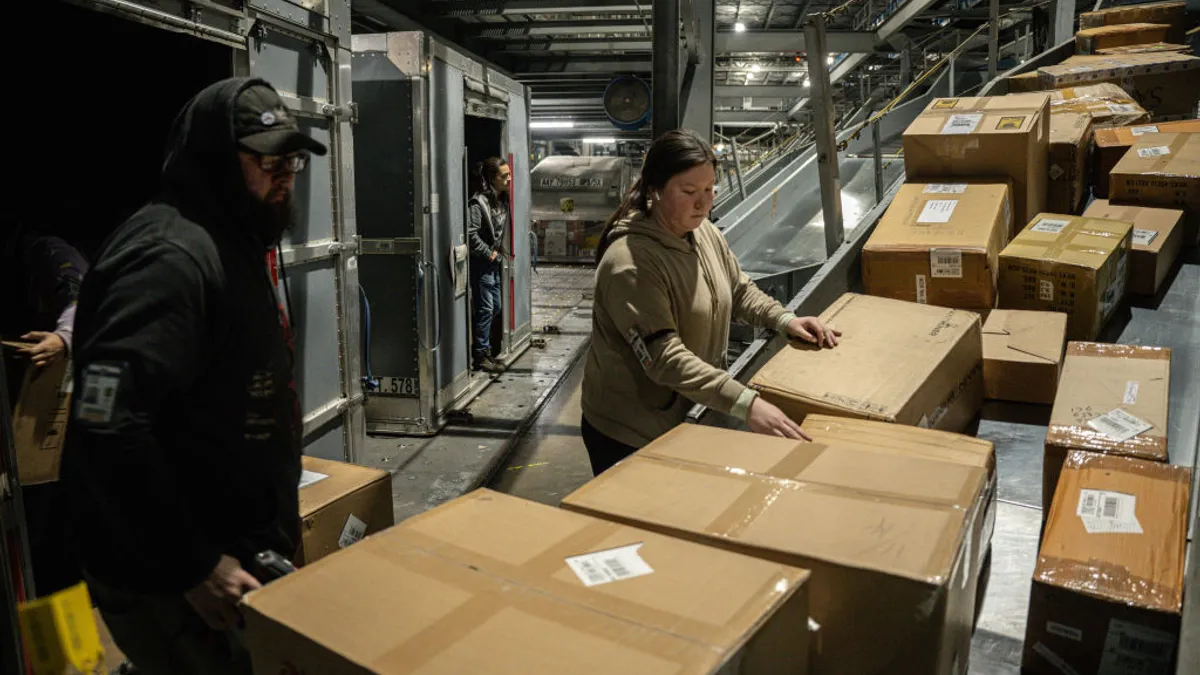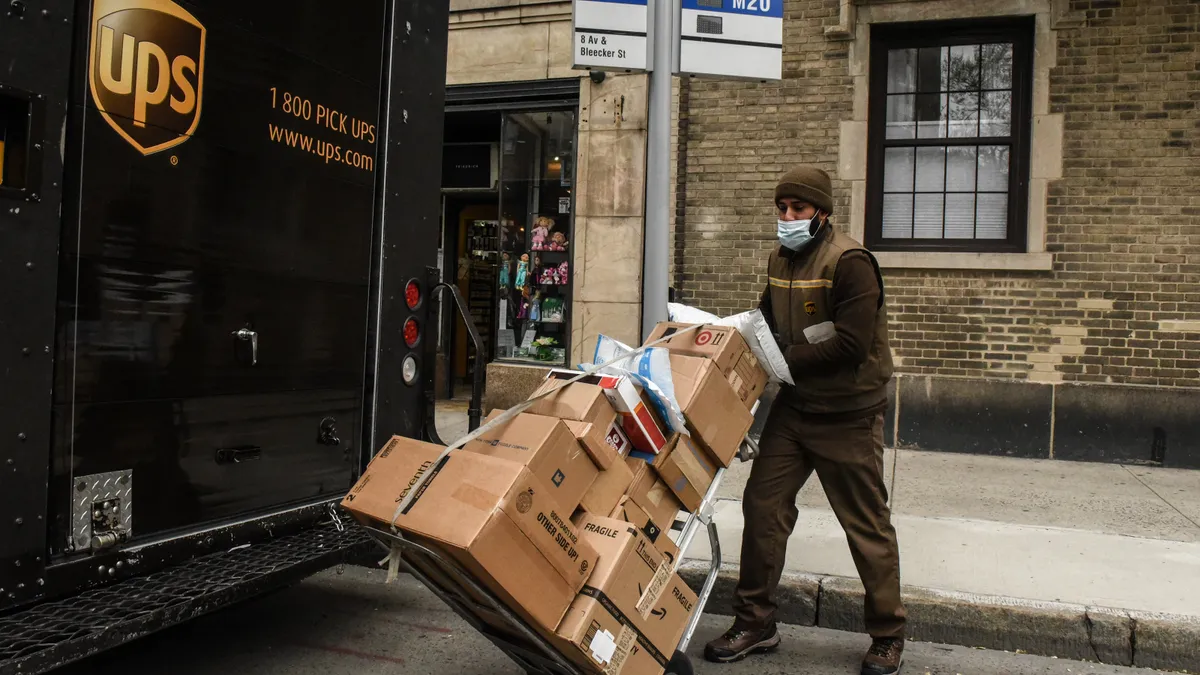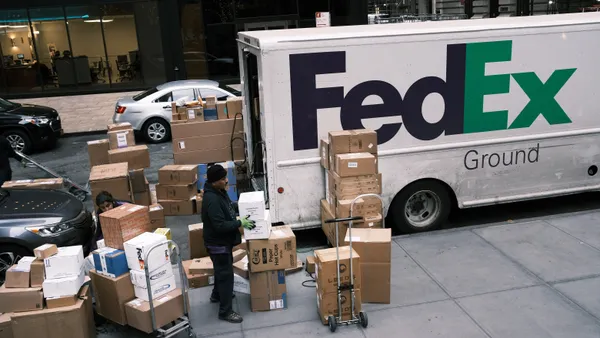UPS and the International Brotherhood of Teamsters' newly ratified labor contract could increase pressure for FedEx and other logistics companies to bump up workers’ wages and benefits, experts say.
The contract, which took effect in August after a monthslong negotiations process, will lead to the average full-time UPS driver making about $170,000 annually in pay and benefits, CEO Carol Tomé said in an earnings call. Previously, they made an average of $145,000 in pay and benefits. Other workers covered by the contract will also see wage increases.
UPS’ increase in pay and benefits creates another challenge for logistics companies pushing to attract and retain workers in a tight labor market. Interest in UPS jobs jumped on Indeed after the deal was announced, Bloomberg reported, at a time when workers have felt empowered to demand better wages and working conditions.
"It is going to be a leverage point, you can guarantee that," said Alan Amling, former VP of corporate strategy for UPS. "Workers are going to be using what they just learned about this Teamster contract with UPS to negotiate higher wages."
Rival FedEx has already laid out plans to increase wages for its employees in October.
The company said in an emailed statement that select U.S.-based employees will be eligible for a pay increase based on a percentage of their base salaries. It did not specify eligibility requirements or the percentage amount.
"These annual merit increases, which take effect in October, are a regular and important component of our overall compensation structure, and in the rapidly evolving talent market, are an essential tool to reward and retain top performers," FedEx said.
Deal stiffens competition for logistics workers
UPS' position as an industry leader in terms of pay and benefits isn't anything new, according to Jeremy Tancredi, a partner in West Monroe’s Operations Excellence practice. The company’s compensation package corresponds with the robust standards and policies it has employees follow, along with the fixed nature of its delivery routes, relative to more flexible competitors.
"They have tighter timelines and constraints, they have standards on their drivers that they have to meet in terms of how long it takes to deliver packages," said Tancredi, a former UPS industrial engineer. "With all those expectations, the driver is going to command a higher pay."
There's also a finite supply of UPS driver jobs and desirable delivery routes, with employees biding their time before securing the preferred route they bid on.
"You had guys on the call list for eight to 10 years before they got a bid job that they really wanted," Tancredi said.
Still, the agreement and its wage increases stiffens competition for labor in the logistics industry, which has already been grappling with climbing wages since the COVID-19 pandemic accelerated demand for delivery services.
Wages keep climbing for logistics employees
Amling, who is now a distinguished fellow at the University of Tennessee’s Global Supply Chain Institute, said the current labor market is comparable to the U.S. housing market: While demand has dropped this year, prices have remained elevated due to tight supply.
"It's going to create inflationary pressure for the industry, and that's something that managers have been dealing with now for a while," Amling said of the UPS contract agreement.
UPS, FedEx trim labor costs amid wage hikes
As wages climb in a period of softer demand, UPS and FedEx are pushing to limit overall labor costs by leaning on automation and streamlining operations.
UPS, for example, leaned on AI and machine learning to match its network capacity to lower volume levels in Q2. This helped the company cut labor hours by nearly 10%.
"Additional labor costs in the back half of the year will be partially offset by the network adjustments we made in the second quarter," Tomé said on the earnings call.
At the same time as FedEx competes to attract and retain workers, the company is aiming to find $1.8 billion in savings through a network overhaul via its DRIVE program.
While FedEx may be hard-pressed to match the wages outlined in the new UPS-Teamsters contract, the company could improve its standing versus UPS through lower operating costs, said Dean Maciuba, managing partner USA for Crossroads Parcel Consulting.
"I don't think FedEx can support increased wages to match UPS — not in a million years," Maciuba said. "I do think they can operate more cost effectively and potentially be more competitive on price while at the same time driving margin."
Editor's note: This story was first published in our Logistics Weekly newsletter. Sign up here.



